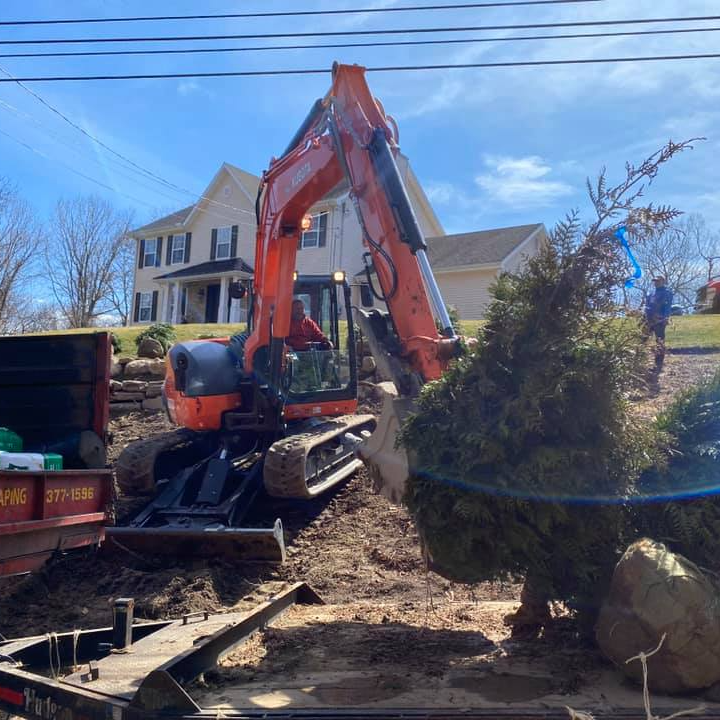Comprehensive Excavation Approaches: Mastering the Basics for Success
The mindful planning, specific implementation, and meticulous attention to detail required in excavation tasks require a thorough method that includes different fundamental aspects. The real proficiency exists not simply in understanding these fundamentals but in effortlessly incorporating them to browse the complexities of excavation projects with finesse.
Comprehending Excavation Job Planning

Effective excavation tasks are constructed on the foundation of detailed and meticulous preparation. The initial stage of any excavation job is the preparation stage, where crucial choices are made that can dramatically affect the outcome of the job. During this stage, it is necessary to collect all appropriate details regarding the website, including topographical studies, dirt composition, and any kind of potential risks that might exist. Understanding the job range, spending plan, and timeline restrictions is crucial for producing a comprehensive excavation plan that makes certain the project's success.
One key facet of excavation task preparation is the development of a comprehensive timeline that describes the sequence of turning points, due dates, and activities. This timeline works as a roadmap for the project group, permitting them to track progression and make needed modifications to guarantee the project remains on timetable. Furthermore, a well-defined budget that makes up all costs, including equipment service, labor expenses, and materials, is necessary for preventing cost overruns and hold-ups. By meticulously thinking about all these aspects during the preparation stage, excavation projects can be executed successfully and properly, resulting in successful end results.
Soil Analysis and Website Evaluation
Carrying out detailed soil evaluation and website evaluation is an essential step in the preparation stage of any excavation job. Dirt evaluation entails identifying the structure, framework, and homes of the dirt at the excavation website. This details is crucial for comprehending the dirt's bearing ability, dampness content, and capacity for disintegration, which are crucial consider identifying the excavation approaches and tools needed for the project.
Site assessment surpasses soil analysis and includes a more comprehensive analysis of the general website problems. This analysis includes recognizing any prospective threats, such as underground utilities, environmental issues, or unsteady terrain, that might affect the excavation process. By completely evaluating the site, job supervisors can establish efficient excavation methods that prioritize security, efficiency, and environmental protection.
Making use of innovative modern technologies like ground-penetrating radar, soil tasting, and drone studies can improve the accuracy and efficiency of dirt evaluation and site assessment. Investing time and sources in these initial steps can ultimately conserve time and stop expensive delays or difficulties throughout the excavation process.
Equipment Option and Usage
Effective excavation projects count heavily on strategic tools choice and usage to ensure optimum performance and productivity. Picking the ideal equipment for the work is critical in making the most of efficiency and decreasing downtime. Elements such as the type of dirt, depth of excavation, and task range play a substantial function in identifying the most ideal devices for the job available.

Along with choosing the proper tools, correct application is vital to task success. Operators has to be educated to take care of the tools securely and efficiently - lancaster excavation. Regular maintenance checks and prompt repairs help prevent breakdowns and guarantee consistent performance throughout the project
Safety Measures and Rules Conformity
In the world of excavation projects, focusing on precaution and compliance these details with policies is vital to read the full info here ensuring a lawfully audio and safe and secure functional setting. Precaution encompass a variety of practices, consisting of carrying out extensive website evaluations, carrying out correct signs and barriers, and providing ample security training for all personnel associated with the excavation procedure. Adherence to policies, such as OSHA requirements in the USA, guarantees that the excavation project fulfills the needed standards to shield workers, bystanders, and the surrounding atmosphere.

Tracking Progression and Adjusting Strategies
Just how can predict supervisors properly track the development of excavation jobs and adapt their approaches as necessary to optimize end results? Surveillance progress is important for guaranteeing that excavation tasks remain on track and satisfy deadlines. Project managers can utilize numerous tools and techniques to track progress, such as daily report card, regular website assessments, and progressed tracking innovations like drones and general practitioners tracking systems. By constantly keeping an eye on the project's innovation, managers can recognize any kind of potential hold-ups or concerns beforehand and take positive actions to address them.

Final Thought
To conclude, mastering the principles of thorough excavation strategies is important for the success of any task. By recognizing task preparation, assessing soil and site conditions, picking appropriate tools, adhering to safety and security guidelines, and keeping an eye on development, project managers can make certain a effective and smooth excavation process. Implementing these approaches will lead to effective results and minimize prospective risks or troubles during the excavation job.
The initial stage of any excavation job is the preparation stage, where essential decisions are made that can significantly influence the end result of the task. Recognizing the job extent, timeline, and spending plan constraints is critical for creating a detailed excavation strategy that makes sure the task's success.
Just how can project managers successfully track the improvement of excavation projects and adapt their techniques appropriately to maximize end results? By carefully keeping track of development and being ready to adjust approaches, job managers can boost the total success of excavation tasks.
By understanding project planning, analyzing dirt and website problems, selecting appropriate equipment, complying with safety regulations, and keeping track of progress, task supervisors can guarantee a effective and smooth excavation process.